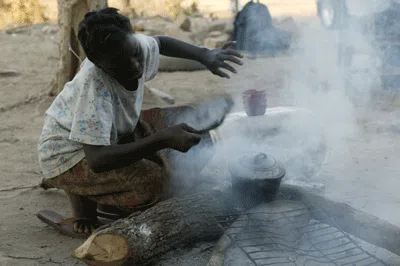Uwandu emphasized the dire situation, particularly in the Niger Delta region, where approximately 21,000 women lose their lives each year due to reliance on firewood and charcoal.
Drawing a stark comparison, he equated cooking with these traditional fuels to smoking 20 packs of cigarettes daily, highlighting the immense health risks faced by Nigerian women on a daily basis.
He lamented the lack of attention given to this silent killer, stating that while diseases like malaria and HIV/AIDS receive significant focus, the deadly impact of cooking with “dirty” fuels often goes unnoticed.
Despite being the leading cause of mortality in Nigeria, clean cooking initiatives receive minimal funding compared to other health interventions.
Uwandu urged both national and sub-national governments to prioritize clean cooking solutions and seize global opportunities to address this issue.
ALSO READ:NAFDAC seals 50 outlets in Kaduna for unhygienic edible oil sales
He emphasized the need for robust policies and government support to transition communities from reliance on dirty fuels to cleaner alternatives. Ultimately, he called for concerted action to save lives and improve the health and well-being of Nigerian women across the nation.
Uwandu said, “Cooking with firewood, and charcoal is equivalent to smoking 20 packages of cigarettes For an average smoker that is too much, that is what women in Nigeria have to deal with daily.
“In Nigeria 98, 000 women die annually from the use of firewood and charcoal and across the 774 local governments that translates to about 2,700 deaths annually.
“In Niger Delta alone 21, 000 women die from the use of firewood and charcoal. If we bring that home to Akwa Ibom State 31 Local governments 75 women die every year from the use of firewood and charcoal”.
Today, in Nigeria, cooking with dirty fuel is the highest killer of Nigerians but for some reason malaria and HIV get the attention, and nobody talks about cooking with dirty fuel. Globally, 4.6bn dollars was provided to fight against malaria and HIV for Nigeria but clean cooking receives less than 200 million dollars, we have to do more.”
